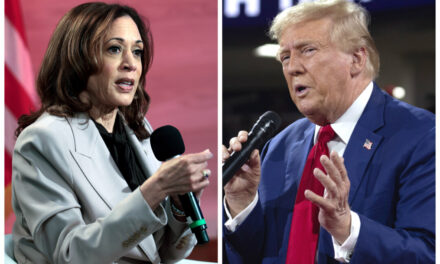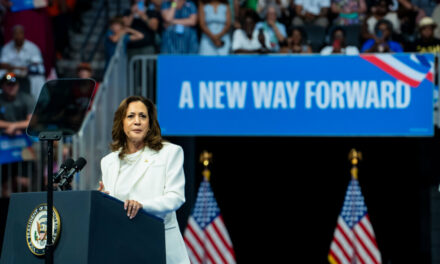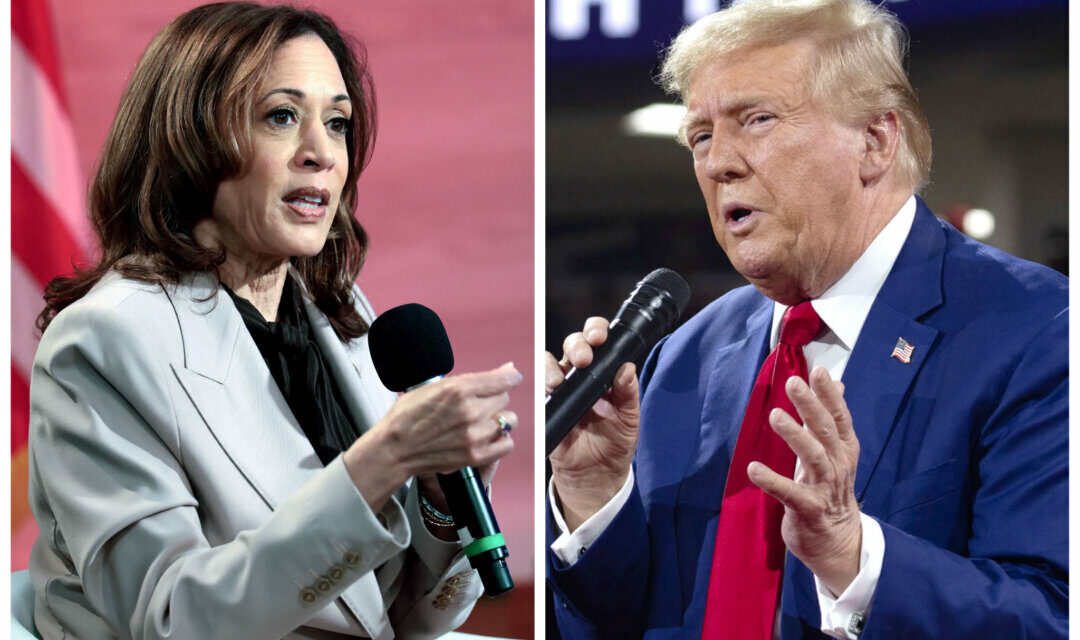We support our Publishers and Content Creators. You can view this story on their website by CLICKING HERE.
‘Setting a course for improved fiscal health will be challenging,’ said Carl Tannenbaum, chief economist at North Trust.
America’s fiscal health, from the national debt to the budget deficit, is not a priority for the presidential candidates in this year’s election, say economists.
The federal deficit has climbed to $1.9 trillion in the first 11 months of the current fiscal year. The budget watchdog projects the annual shortfall will exceed $2 trillion by 2031.
These headline numbers are on top of the long-term unfunded obligations, including Social Security, which faces a permanent deficit of $63 trillion.
Despite these immense numbers, neither Vice President Kamala Harris nor former President Donald Trump are talking about the nation’s fiscal health, according to Carl Tannenbaum, the chief economist at North Trust.
Instead, Tannenbaum says, the presidential candidates are proposing “politically appealing but fiscally worrisome” policy proposals.
Harris would potentially increase the federal deficit by between $1.2 trillion and $2 trillion over the next 10 years, according to the business school’s projection of policy proposal effects. Conversely, Trump could boost the budget deficit by between $4.1 trillion and $5.8 trillion.
Both campaigns have stated that their respective candidates’ initiatives would raise revenues and offset spending hikes or tax cuts. However, the federal government’s fiscal health requires serious proposals, said Kent Smetters, a professor of business economics and public policy at Penn Wharton.
“Climbing federal debt will eventually cause the U.S. fiscal house to burn down, and both candidates are only arguing over the furniture,” Smetters told The Epoch Times on Sept. 25.
Any potential improvement to the federal government’s fiscal situation might require focusing on one of four major spending drivers: defense, health care (Medicare and Medicaid), interest payments, and Social Security, as approximately 80 percent of annual spending is dedicated to these four pillars of the budget.
ING economists agree that government borrowing and debts are “barely getting a mention” this election cycle, which may not be a good sign that Washington will change the fiscal trajectory anytime soon. This “risks further debt downgrades, more market volatility and higher borrowing costs,” they said.
Last year, the U.S. government received two credit downgrades.
The national debt clock at a bus station in Washington, on Aug. 6, 2024. Madalina Vasiliu/The Epoch Times
What Voters Say
So why are the presidential heavyweight contenders refraining from discussing the debt?
Atul Bhatia, an economist at RBC Wealth Management, said that touching these programs “is political death.”
Surveys suggest that voters are worried about the debt.
Similar percentages of voters agreed that Trump and Harris must ensure their policies do not add to the debt and explain how they would prevent a 21 percent automatic reduction in Social Security benefits.
A poll earlier this year by Main Street Economics, an organization dedicated to educating the public about economics, found that 91 percent of voters are worried that a failure to address the national debt will have long-term effects on their financial lives.
“Americans are very worried about their own financial security, putting it on par with personal safety and armed conflicts,” former U.S. comptroller general and Main Street Economics advisory board member David Walker said in a statement accompanying the polling data. “Voters want our country’s elected leaders to put our nation’s finances in order now and in a sustainable manner.”
But do not expect anything different to happen after the election is finished, notes Tannenbaum.
“Setting a course for improved fiscal health will be challenging,” Tannenbaum said, adding that national debt concerns will not be diminished no matter the election outcome in November.
A Global Debt Bomb
It is not only the United States that faces mountainous debt levels.
“These chronic fiscal deficits represent a significant and persistent policy misalignment that needs to be urgently addressed,” the group said.
IMF officials recommended raising indirect taxes, increasing income taxes for those earning less than $400,000 per year, eliminating various tax expenditures, and reforming entitlement programs.

 Conservative
Conservative  Search
Search Trending
Trending Current News
Current News 












